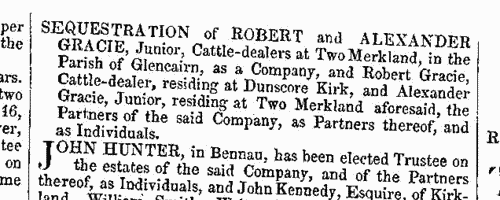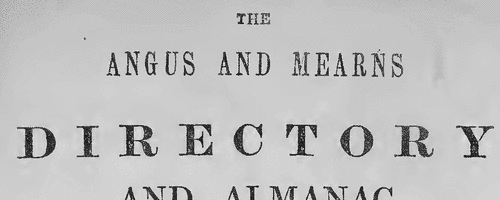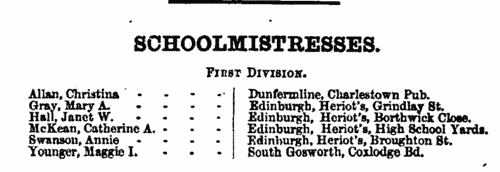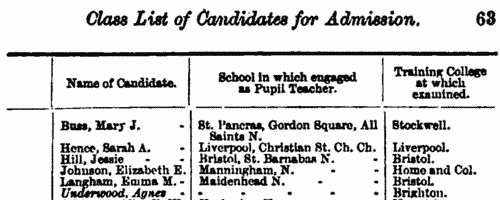Grassick Surname Ancestry ResultsOur indexes 1000-1999 include entries for the spelling 'grassick'. In the period you have requested, we have the following 22 records (displaying 1 to 10): Single Surname Subscription | | | Buying all 22 results of this search individually would cost £120.00. But you can have free access to all 22 records for a year, to view, to save and print, for £100. Save £20.00. More... |
These sample scans are from the original record. You will get scans of the full pages or articles where the surname you searched for has been found. Your web browser may prevent the sample windows from opening; in this case please change your browser settings to allow pop-up windows from this site. Scottish litigants, rebels and cautioners
(1592-1599)
The Privy Council of Scotland exercised a superior judicial authority in the kingdom, and consequently received and dealt with a constant stream of petitions, as well as dealing with the internal security of the state. This register of the council from August 1592 to May 1599, in the reign of king James VI, was edited by David Masson and published under the direction of the Deputy Clerk Register of Scotland in 1882. The publication brings together the contents of the principal register (Acta Secreti Concilii) with acts and bands (bonds) of caution (surety) from the registers called Acta Cautionis (pp 561-730); Acts and Ordinances relating to the Borders and the North (731-748); and Miscellaneous Privy Council Papers (749-769). Many of the individuals mentioned are the complainants, those of whom they complained, and the sureties on both sides: at this period, many of the complainants are alleging serious attacks, often of a feuding nature. Many of the bonds entered into by the cautioners are promises to keep the peace towards such enemies. Failure to answer to the council when summoned was a serious contempt, leading to being denounced a rebel, with serious consequences.
GRASSICK. Cost: £4.00.  | Sample scan, click to enlarge

| The Edinburgh Gazette
(1846)
The Edinburgh Gazette is the official publication in which various Scottish legal notices are issued, as well as promotions and casualty lists for the British army as a whole, and brief lists of English bankrupts. The key source for tracing details of Scottish bankruptcies, insolvencies, and dissolutions of business partnerships.GRASSICK. Cost: £6.00.  | Sample scan, click to enlarge

| Inhabitants of Brechin (1847)
This alphabetical directory gives full names, occupation and address.
GRASSICK. Cost: £8.00.  | Sample scan, click to enlarge

| Scottish Bankrupts
(1848)
Scotch Sequestrations: bankruptcy often caused people to restart their lives elsewhere, so these are an important source for lost links
GRASSICK. Cost: £6.00.  | Sample scan, click to enlarge

| Scottish Bankrupts
(1849)
Perry's Bankrupt and Insolvent Gazette, issued monthly, included lists of sequestrations of Scottish bankrupts' estates. The initial entry gives the name of the bankrupt (surname first, in capitals), trade and address; the dates and place of the stages of the sequestration process, and the date by which claims against the estate were to be lodged. This is the index to the names of the bankrupts, from the issues from January to December 1849: it also covers dissolutions of partnerships in Scotland, and the names of trustees, assignees, attorneys &c. mentioned in these Scottish cases.GRASSICK. Cost: £6.00.  | Sample scan, click to enlarge

|  Persons of standing recommending London police recruits
(1843-1857) Persons of standing recommending London police recruits
(1843-1857)
The Metropolitan Police Register of Joiners (MEPO 4/334) lists policemen joining the force 1 January 1843 to 1 April 1857 (warrant numbers 19893 to 35804). The register is alphabetical, in so far as the recruits are listed chronologically grouped under first letter of surname. It gives Date of Appointment, Name, Number of Warrant, Cause of Removal from Force (resigned, dismissed, promoted or died), and Date of Removal. Although the register was closed for new entrants at the end of 1842, the details of removals were always recorded, some being twenty or more years later. Those recruits not formerly in the police, the army, or some government department, were required to provide (normally) at least two letters of recommendation from persons of standing, and details of these are entered on the facing pages. Where a recruit was only recently arrived in the metropolis, the names and addresses of the recommenders can be invaluable for tracing where he came from. Those recruits not formerly in the police, the army, or some government department, were required to provide (normally) at least two letters of recommendation from persons of standing, and details of these are entered on the facing pages: the names in these are indexed here (the police recruits are indexed separately and not included here). Recruits transferred from other forces or rejoining the force did not normally need recommendations - in the latter case, former warrant numbers are given - but some recommendations are from police inspectors, even other constables. Recruits coming from the army sometimes have general military certificates of good conduct, but most often have a letter from their former commanding officer; recruits recommended by government departments (most often the Home Office) similarly have letters from the head of department. But the great majority of the names and addresses in these pages are of respectable citizens having some sort of personal acquaintance with the recruit. Where more than two recommendations were provided, the clerk would only record one or two, with the words 'and others'. Tradesmen are sometimes identified as such by their occupations; there are some gentry. Although the bulk of these names are from London and the home counties, a scattering are from further afield throughout Britain and Ireland. GRASSICK. Cost: £8.00.  | Sample scan, click to enlarge

| Scottish Bankrupts
(1858)
Perry's Bankrupt and Insolvent Gazette, issued monthly, included lists of sequestrations of Scottish bankrupts' estates. The initial entry gives the name of the bankrupt (surname first, in capitals), trade and address; the dates and place of the stages of the sequestration process, and the date by which claims against the estate were to be lodged. This is the index to the names of the bankrupts, from the issues from January to December 1858: it also covers dissolutions of partnerships in Scotland, and the names of trustees, assignees, attorneys &c. mentioned in these Scottish cases.GRASSICK. Cost: £6.00.  | Sample scan, click to enlarge

| Scottish Pupil Teachers training to become Schoolmasters
(1878)
The Education Department set examinations for candidates for admission into training colleges, and to become teachers. This is the class list (in order of merit) of the pupil teachers who passed that examination at Christmas 1878. The list gives the candidate's name (surname first), and school in which engaged (C. of S. or G. A. for schools connected with the General Assembly of the Established Church of Scotland, F. C. Free Church of Scotland, Epis. Episcopal Church of Scotland, R. Roman Catholic, Sessl. Sessional School, P. Parochial). (The sample scan is from the list for Scottish schoolmistresses)GRASSICK. Cost: £6.00.  | Sample scan, click to enlarge

| Trainee Schoolmistresses in Scotland
(1878)
The Education Department set examinations for candidates for admission into training colleges, and for the office of teacher. This is the list of successful female candidates from Scotland at the examination at Midsummer 1878. The number in the first column shows order of merit in each class in the examination; then there is the name of the candidate (surname, christian name and any intermediate initial(s)), the school in which engaged, and the training college at which examined. The names of pupil teachers are shown in italics, with the 'school in which engaged' column left blank. These abbreviations are used in the names of schools: C. of S., Church of Scotland; Epis., Episcopal; F. C., Free Church; G. A., General Assembly (Church of Scotland); P., Parochial; Pub., Public; R. C., Roman Catholic; Sessl., Sessional; Undl., Undenominational.GRASSICK. Cost: £6.00.  | Sample scan, click to enlarge

| Members of music institutions
(1905)
The calendar of the Trinity College of Music, London, for 1905-1906 includes a section listing institutions enrolled in union with the college (throughout the world) with names of secretaries; centres authorised by the board for the holding of local examinations in music, with names of secretaries; and the local centre committees, with names of chairmen, secretaries, and members of their boards.GRASSICK. Cost: £8.00.  | Sample scan, click to enlarge

|
Research your ancestry, family history, genealogy and one-name study by direct access to original records and archives indexed by surname.
|













